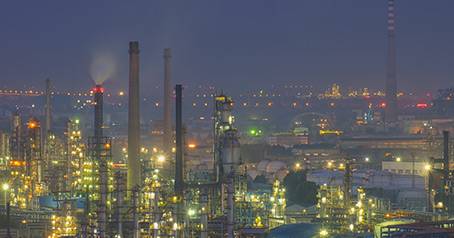Aug . 13, 2024 04:22 Back to list
Exploring the Versatility and Applications of Twelve Inch PVC Pipes in Construction and Plumbing Projects
The Versatility and Uses of 12-Inch PVC Pipe
PVC (Polyvinyl Chloride) pipes have become an essential component in various industries and applications owing to their durability, affordability, and ease of handling. Among the different sizes available, the 12-inch PVC pipe stands out due to its versatility in both residential and commercial applications. This article will explore the characteristics, uses, and advantages of 12-inch PVC pipe.
Characteristics of 12-Inch PVC Pipe
12-inch PVC pipes are typically used in plumbing and drainage systems. Made from high-quality polyvinyl chloride, these pipes exhibit exceptional resistance to corrosion, making them suitable for water transportation. They are lightweight, which simplifies installation and handling, yet they maintain a high degree of strength and rigidity. PVC pipes are also non-toxic, making them safe for potable water systems.
The 12-inch diameter allows for a significant flow capacity, making these pipes ideal for a variety of applications. Notably, they are available in different wall thicknesses, categorized by schedule numbers (e.g., Schedule 40, Schedule 80), which dictate their pressure rating and durability. This range makes it easier for engineers and contractors to select the right pipe based on specific project requirements.
Applications of 12-Inch PVC Pipe
One of the most common applications of 12-inch PVC pipe is in stormwater management systems. These pipes are often used to convey stormwater to treatment facilities or directly to water bodies. The large diameter allows for efficient drainage and helps to prevent flooding in urban areas, making them a vital component of infrastructure projects.
In addition to stormwater management, 12-inch PVC pipes are frequently used in irrigation systems. Their durability and resistance to environmental degradation make them well-suited for agricultural applications, where they can transport water over long distances to ensure crops receive adequate hydration.
12 inch pvc pipe

Another significant application is in industrial settings. Large manufacturing facilities often require extensive piping systems for transporting chemicals, wastewater, and other materials. The chemical resistance of PVC makes it a suitable choice for such tasks, minimizing the risk of leaks and contamination.
Advantages of Using 12-Inch PVC Pipe
The advantages of using 12-inch PVC pipe are manifold. First and foremost, the cost-effectiveness of PVC compared to other materials like metal or concrete cannot be overstated. Its lower material costs, along with reduced installation time due to its lightweight nature, help to keep project budgets in check.
Moreover, the longevity of PVC pipes is a notable benefit. They have a lifespan of over 50 years when installed correctly, reducing the need for frequent replacements and repairs. This, combined with minimal maintenance requirements, results in long-term savings for property owners and municipalities.
Furthermore, the smooth interior walls of PVC pipes facilitate easy flow with minimal friction loss. This characteristic is particularly beneficial in large-scale water transfer projects, where efficiency is paramount. Additionally, the chemical resistance of PVC makes it a preferable choice in environments where pipes may come into contact with aggressive substances.
Conclusion
In conclusion, the 12-inch PVC pipe is an invaluable asset across various sectors, boasting a combination of durability, versatility, and cost-effectiveness. Whether it is used in stormwater management, irrigation, or industrial applications, its benefits are evident. As industries continue to evolve and innovate, the role of PVC piping, particularly the 12-inch variety, will remain significant in ensuring efficient and reliable infrastructure. As such, understanding its properties and applications is essential for engineers, contractors, and anyone involved in construction and plumbing industries.
-
High-Quality PPR Pipes and Fittings Durable ERA PPR & PVC PPR Solutions
NewsJul.08,2025
-
Black HDPE Cutting Board - Durable, Non-Porous & Food Safe HDPE Plastic Cutting Board
NewsJul.08,2025
-
High-Quality CPVC Panel Durable HDPE & PVC Panels Supplier
NewsJul.08,2025
-
Double PE Welding Rod Supplier - High Strength, Durable & Versatile Welding Solutions
NewsJul.07,2025
-
High-Quality PVC-O Pipe Supplier Durable 75mm PVC Pipe & Connections Leading PVC Pipe Company
NewsJul.07,2025
-
HDPE Drainage Pipe Supplier – Durable & Corrosion-Resistant Solutions
NewsJul.06,2025

